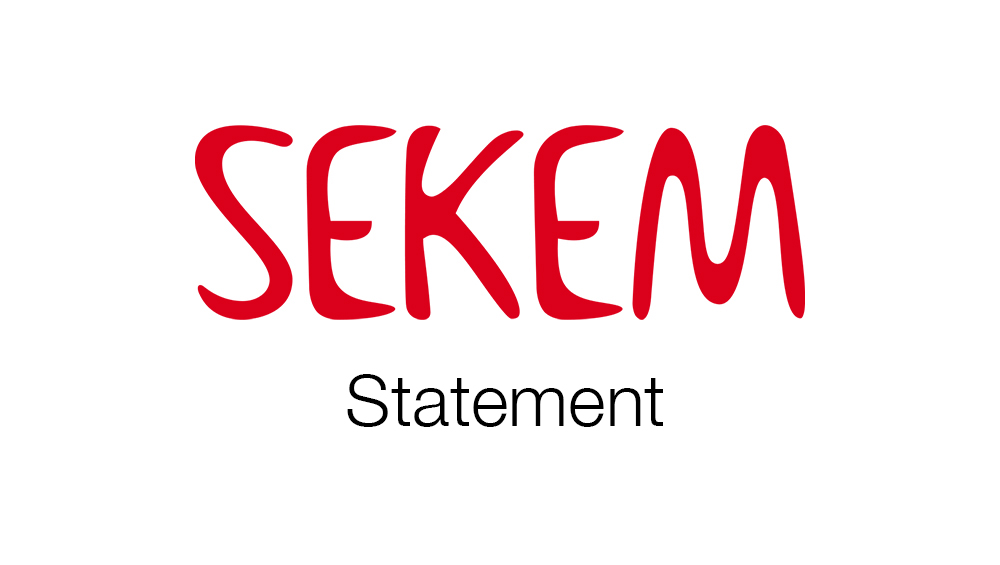While the world is in crisis, we in SEKEM reflect on how we can actively contribute to overcome the challenges. The Corona crisis affects not only individuals, but also all spheres SEKEM is actively involved in and that shape life – the economy, the ecology, the social as well as the cultural sphere.
First and foremost, our thoughts are with those who are particularly affected by the spread of Covid-19, those who suffer from the disease or whose livelihood is threatened. Especially when we think of these great challenges, we cannot help but wonder what lessons we can learn from such a crisis. Hence, we discuss many questions and thoughts during regular meetings with all our co-workers.
What can we learn from the crisis?
In the past, the world has lived in the conviction that a flourishing economy is fundamental to the advancement of humanity. Now, that the economy has suffered enormous losses in a very short time, we can notice that there are several ways to keep the world running without economic growth – can this be a lesson for us that encourages us to rethink economics?
The metropolises with the greatest environmental pollution seem to have a particularly high number of sick people, while at the same time the environment is recovering enormously fast, for example due to the sharp decline in traffic. Will humanity only be able to deal responsibly with the environment in a crisis if personal freedom is restricted at the same time?
How are the other creatures on this planet doing and how is our relationship with animals and nature affected while human health is threatened?
Is the spread of such a pandemic influenced by materialism? Or: What can each one of us learn from this crisis for our individual development?
Despite “social distancing”, we are experiencing a growing social responsibility – does that show that maybe the salespeople, caregiver or craftsmen are the ones carrying our society and not only company bosses and politicians? And while life is reduced to the most necessary, art and culture are proving to be more important than ever. People are singing on balconies, policemen are dancing in the streets and the thirst for intellectual nourishment is growing.
Situation in Egypt
According to official figures, over 3000 people in Egypt are currently suffering from Covid-19 and around 200 have died as a result. The country is thus still at the very beginning of the exponential growth curve. Schools, universities, mosques, churches as well as the archaeological sites and beaches are closed and a curfew is imposed between eight in the evening and six in the morning. In order to face the effects of the crisis, the Egyptian government has allocated six billion euros.
To help slow down the spread of Covid-19, we in SEKEM have also introduced various safety and hygiene measures to protect our employees and community members. We distribute hygiene and disinfection products and regularly measure the temperature of our employees. All major events have been cancelled and guest operations have been suspended.
Caring and providing security
At the same time, however, these developments are accompanied by a growing desire among our co-workers for art and culture. After we had initially stopped our cultural activities, they are now again place on a weekly basis and adapted to the situation. We see this time in particular as a learning phase for taking care of each other, and providing security. And these efforts are showing a wonderful impact: We are happy that despite all the challenges, the energy and the cohesion within the community are very positive during these days,.
Positivity and contribution
It is in this spirit that we look at our vision for the future in 2057, how the corona pandemic has changed the world socially, ecologically, economically and culturally. We discuss what impact this may have on our 18 visionary goals and how we can help to ensure that we are better equipped to face challenges by implementing these goals. These are the four goals we wish to promote within the coming months:
- The development of an integrative health concept within the SEKEM community and the introduction of this approach in Egypt should contribute to the strengthening and resilience of each individual. This includes natural products, healthy nutrition, regular exercises and herbal medicine as well as spiritual development, arts, culture and social relations.
- Introducing the standard and label for an “Economy of Love”. In times when the global economy is coming to a shutdown, we do not want to look at the economy only from the perspective of those who suffer. Neither do we want to limit ourselves to a purely entrepreneurial view and take advantage of the increased sales potential of certain products and areas. We want to make use of the opportunity to stimulate an innovative restructuring of the economy with our “Economy of Love” concept.
- Continue and increase our contribution to a 100% sustainable agriculture in Egypt. A pollutant-free nature, which produces healthy and natural food, is now more important than ever, as shown for example by the enormous increase in demand for organic products in Egypt and on international markets.
- Further expand the SEKEM Core Program and Space of Culture as art and culture initiatives in all activity areas and to disseminate them in Egypt. The important influence of intellectual nutrition on people’s health is particularly evident these days.
In the SEKEM spirit, we want to use the crisis as an opportunity within all our activity fields without neglecting the seriousness of the situation. Thereby, we hope to make a contribution to overcoming the challenges through all our channels and networks in Egypt and internationally.
[embedyt] https://www.youtube.com/watch?v=VUc884beaOk[/embedyt]

